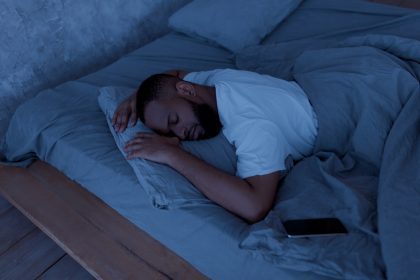In the quiet hours of night, millions of Americans reach for sleeping pills, hoping to find relief from restless thoughts and sleepless nights. While these medications promise the allure of peaceful slumber, sleep specialists increasingly warn about their hidden dangers, particularly for those with underlying health conditions.
The truth about sleep medication dependence
Most people start taking sleeping pills with the best intentions – usually during a particularly stressful period or while dealing with jet lag. However, what begins as a temporary solution often transforms into a nightly ritual. Medical professionals report seeing patients who started with occasional use but now find themselves unable to sleep without medication.
When your brain fights back
Your body naturally creates its own sleep-regulation system, but sleeping pills can disrupt this delicate balance. Over time, your brain may lose its natural ability to regulate sleep cycles, making it increasingly difficult to drift off without chemical assistance. This creates a troubling cycle where more medication becomes necessary to achieve the same effect.
Warning signs you shouldn’t ignore
Changes in sleep patterns often serve as the first warning sign of developing dependence. People might notice they need higher doses to fall asleep or experience anxiety at the mere thought of trying to sleep without medication. These early signals deserve attention before the situation escalates.
The morning-after effect
While sleeping pills might help you fall asleep, their effects often linger well into the next day. Many people report feeling groggy, experiencing difficulty concentrating, or dealing with memory problems. These cognitive effects can impact everything from job performance to daily activities like driving.
The risk multiplies with age
Older adults face particularly high risks when taking sleeping medications. Their bodies process these drugs differently, often leading to longer-lasting effects and increased risk of falls or confusion. Memory problems can become more pronounced, potentially masking or mimicking symptoms of cognitive decline.
Hidden dangers with other medications
Taking sleeping pills becomes especially risky when combined with other medications. Blood pressure medicines, antidepressants, anxiety medications, and even some over-the-counter drugs can interact dangerously with sleep aids. These interactions might amplify side effects or create entirely new health risks.
The addiction nobody talks about
Sleep medication addiction often develops silently, hiding behind the legitimate need for better sleep. Unlike other forms of substance dependence, sleep medication addiction frequently begins with a prescription and medical approval, making it harder to recognize when use becomes problematic.
Impact on mental health
Chronic use of sleeping pills can affect more than just your sleep patterns. Many people experience changes in mood, increased anxiety, or depression symptoms. The medication might temporarily mask these issues, making it harder to recognize and address underlying mental health concerns.
When sleeping pills stop working
Eventually, many regular users discover their sleep medication becomes less effective. This phenomenon, known as tolerance, can lead to a dangerous cycle of increasing dosages or combining different medications in search of better sleep.
The withdrawal challenge
Stopping sleeping pills after regular use presents its own set of challenges. Many people experience rebound insomnia, where sleep becomes even more elusive than before. This difficult period often pushes people back to medication, perpetuating the cycle of dependence.
Natural alternatives gaining ground
Medical professionals increasingly recommend non-medication approaches to better sleep. These methods might take more time and effort than taking a pill, but they offer sustainable, long-term solutions without the risks of medication dependence.
Creating healthy sleep habits
Sleep specialists emphasize the importance of consistent bedtime routines. This means going to bed and waking up at the same time daily, creating a relaxing pre-sleep routine, and making your bedroom a sanctuary for rest rather than work or entertainment.
The power of cognitive behavioral therapy
Many sleep centers now offer specialized cognitive behavioral therapy for insomnia. This approach helps people identify and change thoughts and behaviors that interfere with good sleep. Unlike medication, these changes can lead to lasting improvements in sleep quality.
Technology’s role in sleep problems
The relationship between technology use and sleep problems continues growing stronger. Blue light from screens, constant notifications, and endless scrolling contribute significantly to sleep difficulties. Addressing these modern habits often improves sleep naturally.
Exercise as sleep medicine
Regular physical activity promotes better sleep quality, but timing matters. Morning or early afternoon exercise typically provides the most benefit for sleep, while evening workouts might temporarily energize you when you should be winding down.
Diet changes for better sleep
What you eat and drink can significantly impact your sleep quality. Cutting back on caffeine, avoiding large meals close to bedtime, and limiting alcohol can naturally improve your ability to fall and stay asleep.
Finding professional help
For those currently dependent on sleeping pills, seeking professional help marks an important first step toward better sleep health. Sleep specialists can create personalized plans for gradually reducing medication while implementing alternative strategies.
The future of sleep treatment
Research continues revealing new approaches to treating sleep problems without medication. From light therapy to mindfulness techniques, these emerging treatments offer hope for those seeking alternatives to sleeping pills.
Building a sustainable sleep strategy
Creating lasting improvements in sleep quality typically requires a multi-faceted approach. This might include lifestyle changes, stress management techniques, and working with healthcare providers to address underlying health issues affecting sleep.
Your path to better sleep doesn’t have to rely on medication. By understanding the risks of sleeping pills and exploring alternative approaches, you can work toward natural, restorative sleep that supports your overall health and well-being.
















